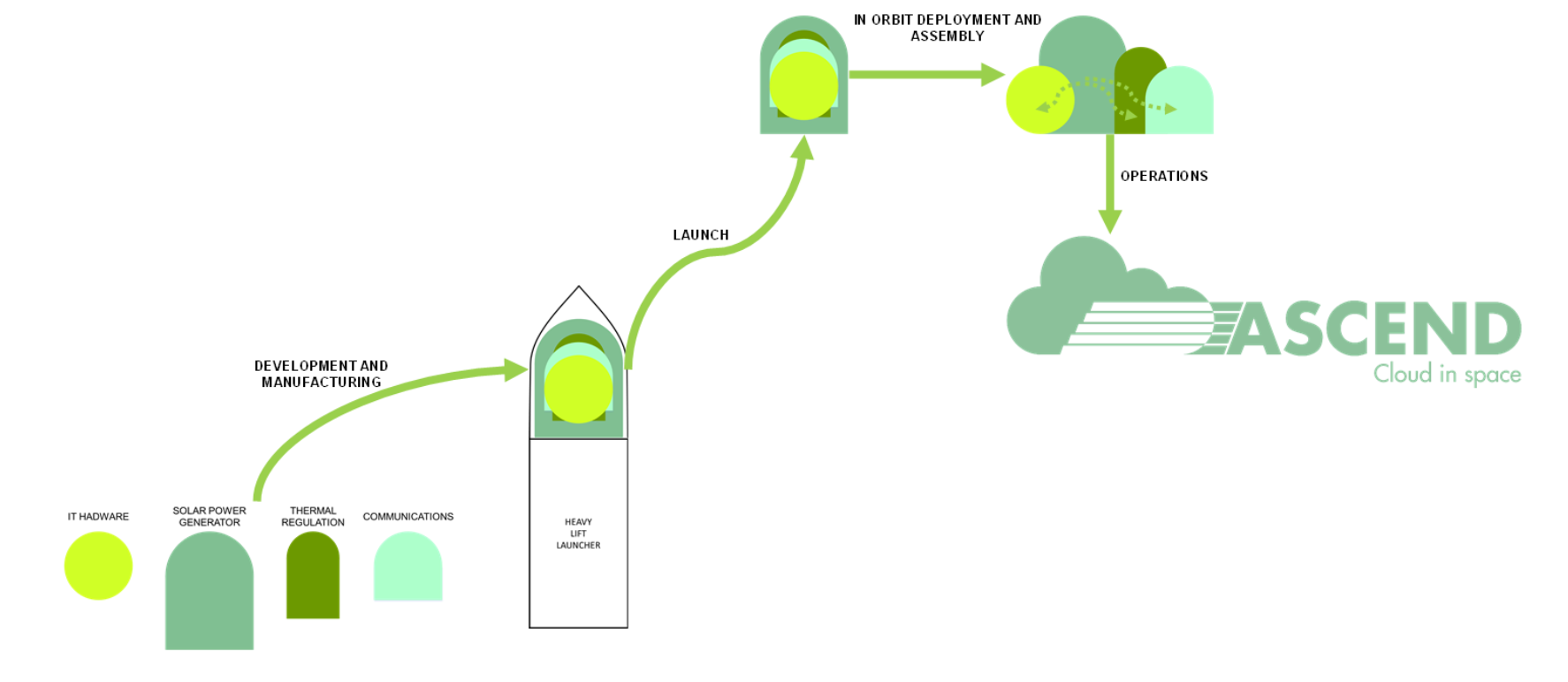Data centers in space are economically feasible and could reduce carbon emissions as workloads for generative AI surge, according to Thales Alenia Space, the coordinator of a European Commission study.
In a statement, Thales Alenia Space, a joint venture between Thales and Leonardo, said that space-launched data centers could drive returns of several billion euros between now and 2050 while moving the EU to net-zero carbon in the same time frame.
The study included expertise from environmental experts (Carbone 4, VITO), cloud computing (Orange Business, CloudFerro and HPE), launchers (ArianeGroup) and orbital systems (Germany's space agency, Airbus and Thales Alenia Space).
Space-based data centers are a topic that's folded under the European Commission's Horizon Europe program. This space cloud for Europe concept falls under a program called ASCEND (Advanced Space Cloud for European Net zero emission and Data sovereignty).

Key points in the feasibility study include:
- Developing and operating data centers in space would significantly reduce CO2 emissions.
- Data centers in space would not require water cooling and could run on solar power.
- The big issue is that a launcher would need to be developed that is 10 times less emissive over its life cycle.
- Returns on investment would justify building a high-capacity, environmentally friendly reusable launcher.
- Modular space infrastructure would be assembled in orbit using robotics from the EC's EROSS IOD (European Robotic Orbital Support Services In Orbit Demonstrator) led by Thales Alenia Space, scheduled to fly its first mission in 2026.
- The ASCEND project would also support Europe's digital sovereignty.
The partners in ASCEND now plan to flesh out the feasibility study and optimize the results with the aim of building out a roadmap for deployment in 2030.
Will we see data centers in space soon? It's unclear. The feasibility study noted that development plans would require European supply chain support, space access, orbital servicers, in-orbit assembly and manufacturing. However, it's possible that private sector entities could pursue similar plans.
Bottom line: Space data centers could cover a bevy of bases--data sovereignty, sustainability and capacity--issues and are worth pursuing.


